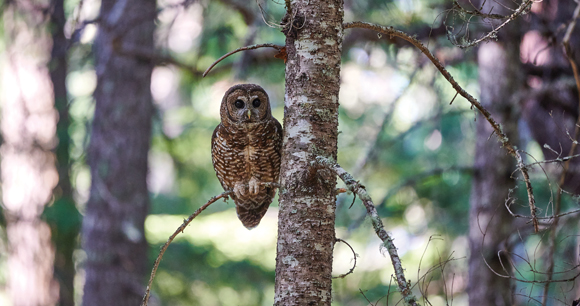California Clamps Down on Rodenticides

In September, California enacted a law placing a moratorium on the use of second-generation anticoagulant rodenticides (SGARs) until new restrictions are adopted to better protect wildlife from these highly toxic chemicals. The law also bans the use of SGARs in state parks, wildlife refuges, and conservancies. SGARs wreak havoc on nontarget wild animals through direct and secondary poisoning. In recent years, over 70 percent of wild animals tested in California have had SGARs in their systems, including mountain lions, bobcats, hawks, and coyotes, as well as endangered species such as the northern spotted owl, Pacific fisher, and San Joaquin kit fox.
Program Terms: Terrestrial Wildlife
AWI Quarterly Terms: Government/Legal, Quick Read
Related News
IUCN Reaffirms Long-Tailed Macaques’ Endangered Status Despite Industry Pressure
In Program: Terrestrial WildlifeThe International Union for Conservation of Nature (IUCN) today released an update to its Red List of Threatened Species. The update revealed that the long-tailed...
AWI Funds Research to Alleviate Human-Wildlife Conflicts, Animal Suffering
In Program: Terrestrial WildlifeThe Animal Welfare Institute (AWI) announced today the eight recipients of its Christine Stevens Wildlife Award who are developing humane solutions to human-wildlife conflicts and...
Refuge from Cruel Trapping Act Reintroduced to Protect Wildlife and Pets on Public Lands
In Program: Companion Animals, Terrestrial WildlifeThe Animal Welfare Institute (AWI) endorses the Refuge from Cruel Trapping Act, reintroduced today in the US House of Representatives by Rep. Jerrold Nadler (D-NY)....
Colorado Now Leads Country in Comprehensive Approach to Fighting Wildlife Trafficking
In Program: Terrestrial WildlifeToday, Colorado Gov. Jared Polis signed S.B. 25-168 into law to combat wildlife trafficking. The bipartisan legislation, which is unique among states for the number...